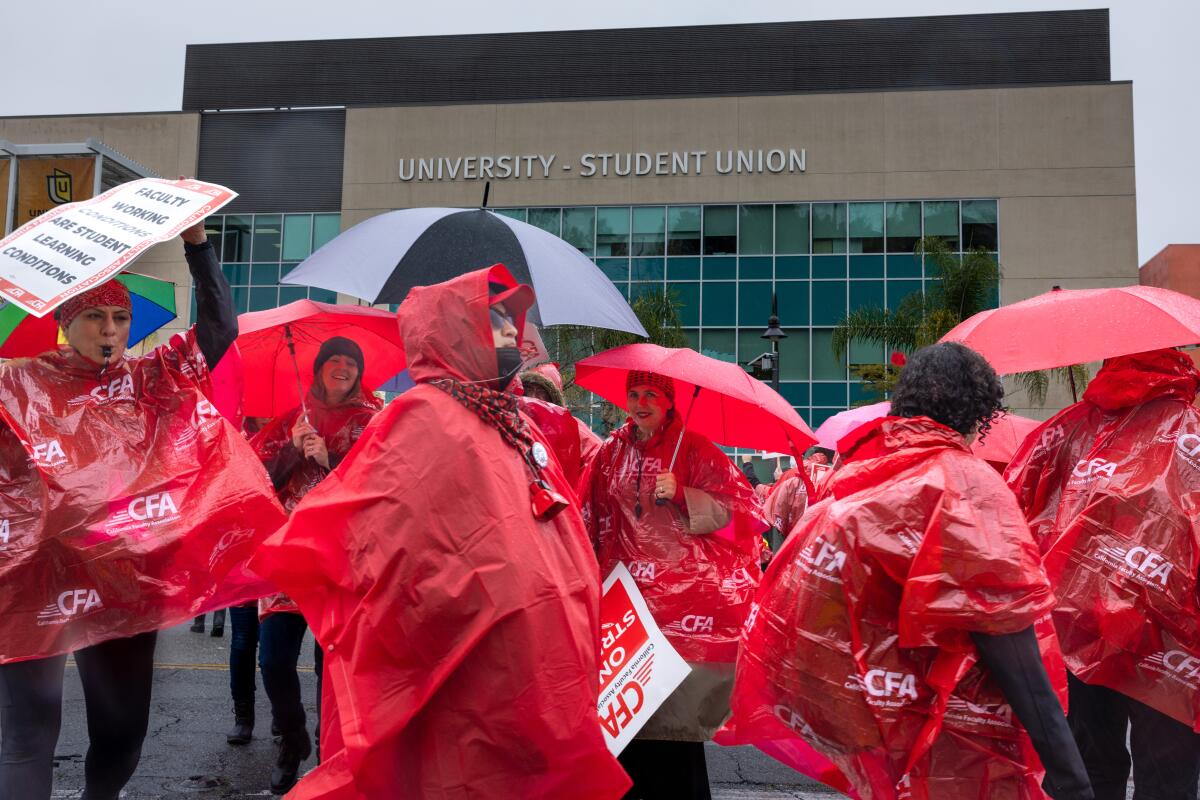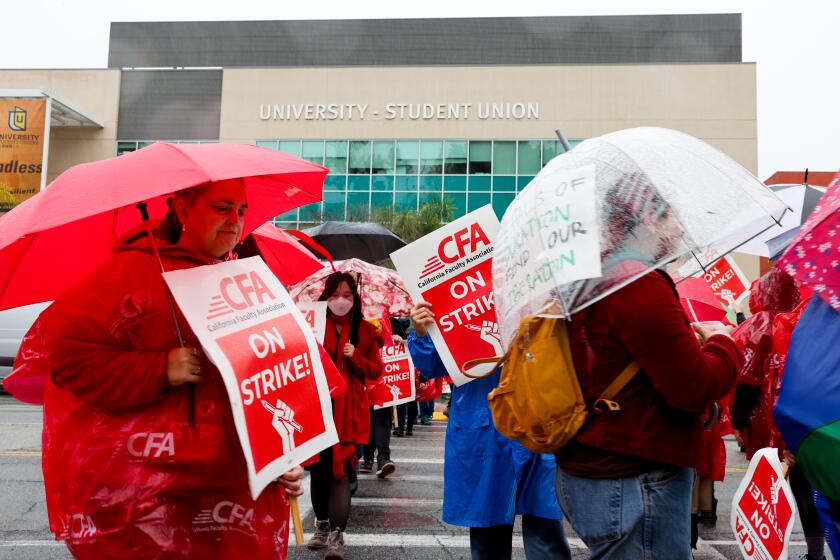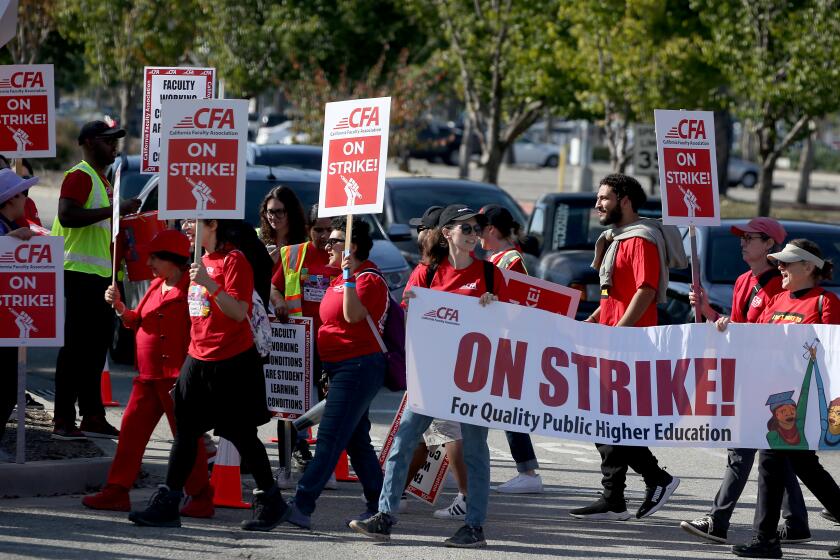CSU faculty union approves contract with university that would raise salaries

- Share via
After months of negotiations and an unprecedented systemwide strike, the Cal State faculty union overwhelmingly approved a new contract with the university that could raise salaries by 10% while providing other benefits, including increased parental leave, the union announced Monday.
California Faculty Assn. President Charles Toombs said in a statement that 76% of voting members approved the agreement and hailed the vote as a sign of the union’s “solidarity, debate and courage to press CSU management for better faculty working and student learning conditions.”
The new contract with California State University includes a 5% raise for all faculty retroactive to July 2023 and another 5% raise that would take effect this July as long as the state does not cut base funding for the 23-campus system. It also includes 10 weeks of paid parental leave, a salary floor increase for the lowest-paid faculty and improved access to gender-inclusive bathrooms.
A brief statement released by the CSU Office of the Chancellor said the university “is pleased with the results” of the union’s vote and said the trustees are expected to give final approval at their March meeting.
Among the 23 CSU schools, only a smattering of courses were taught on the first day of the term. A tentative contract deal has cut short the strike.
A vocal contingent of rank and file members had campaigned against the proposal, claiming it fell short in addressing social justice issues and facilitating systemic change. The agreement was reached after one day of a planned five-day strike in late January that all but shut down classes in the nation’s largest four-year university system.
Some union members believed the union leadership accepted a tentative agreement hastily, contending that staying on strike longer would have increased their bargaining power to attain a better deal. The executive boards of four CSU union chapters issued official statements against the tentative agreement: Long Beach, San Bernardino, Los Angeles and San Francisco.
But union leadership maintained that they struck the best deal possible and expressed confidence last week that the agreement would be ratified.
Will Clark, an assistant professor at San Francisco State University, did not support the tentative agreement but said Monday that dissent within the union reflected a more engaged membership.
“Dissent and disagreements are good parts of the democratic process,” he said. “People disagreed, so more people got involved.”
He said he hopes the union can move forward as a cohesive group. “One thing that everyone feels strongly about is that the union is stronger together,” he said.
San Jose State University lecturer Andrew Delunas, who voted yes on the agreement, said the results of the vote suggest the union is less fractured than it may appear.
“The fact that we were able to approve the tentative agreement with 76% of the vote shows there is still unanimity in the union,” he said.
The agreement was struck during a tense period of so-called reopener bargaining — when certain terms of an existing contract can be negotiated before the contract’s expiration. The new terms the union just approved extend their current contract to June 2025.
The California Faculty Assn., which represents 29,000 faculty members, professors, lecturers, counselors, librarians and coaches, had originally demanded a 12% raise and a full semester of parental leave, among other benefits. Union leadership acknowledged tensions within the union in its Monday announcement sharing the results of the vote.
During week-long, rolling walk-outs at four California State University campuses, faculty highlighted the tenuous working conditions of lecturers, who are a backbone of instruction but ineligible for tenure.
“We know that some members had strong concerns about the process and questions about the result,” said Sharon Elise, CFA associate vice president of Racial & Social Justice, South, and Cal State San Marcos professor, in a statement. “We will only be successful if we’re working together to continue building a CSU that empowers students and provides work environments that support faculty and staff.”
Meghan O’Donnell, a union board member and part of the core bargaining team, said she was pleased that most union members chose to support the agreement.
“I’m very grateful and proud that the vast majority of our members recognized how good this tentative agreement really was and have voted to support it,” she said. “Although I know that some of our members wanted a different outcome, I’m confident we will all come together, as we always do.”
More to Read
Sign up for Essential California
The most important California stories and recommendations in your inbox every morning.
You may occasionally receive promotional content from the Los Angeles Times.













